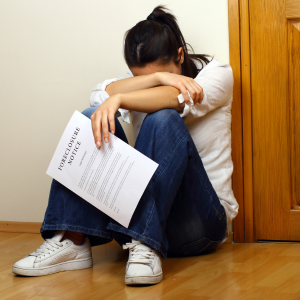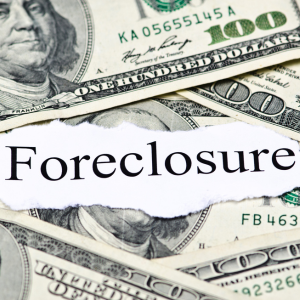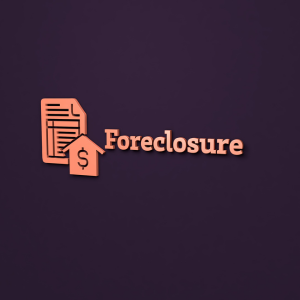
Navigating foreclosure in Georgia can be challenging, but selling your home before the process concludes may provide a strategic way to minimize financial impact. Yellow Card Properties offers professional guidance and solutions to help homeowners successfully sell their property during foreclosure.
Understanding the Foreclosure Process in Georgia
For homeowners in Georgia facing difficult circumstances, it is essential to understand the foreclosure process. In Georgia, lenders can foreclose on a property without court involvement, making the process relatively swift. If you find yourself in this situation, you may want to explore options such as sell your home for cash in Savannah and other cities, providing a fast and effective solution.
Lenders will usually send a Notice of Default to homeowners who miss several mortgage payments. This gives the homeowners a chance to make up the payments or look into other options, such as a loan modification or short sale. It is put in four weeks of local newspapers with a Notice of Sale if the default is not fixed. The land is then sold at an auction at the courthouse on the first Tuesday of every month.
People who want to sell their home before it goes into debt need to act quickly, as shown by how quickly this process works. Families in Georgia can better understand their choices and work with real estate professionals who are skilled in handling distressed property sales if they know these steps and deadlines. This could help them avoid foreclosure altogether.
Legal Requirements for Selling a Foreclosed Home in Georgia
Knowledge of the legal requirements is important for a smooth deal when selling a home in Georgia that is in foreclosure. It is important for homeowners in Georgia to know their rights and responsibilities because the state does not use courts for foreclosures.
To make sure that potential buyers are fully aware of a property’s foreclosure situation, sellers must follow specific disclosure laws. Foreclosure sales are tricky, so it’s essential to work closely with a real estate professional who knows Georgia’s real estate rules inside and out.
Plus, people who are selling their homes should talk to a good lawyer about any contracts or agreements that are linked to the sale. You should take this step to make sure you follow state laws and avoid any possible legal problems.
To sell your home properly before the sale is finalized, you need to know when the foreclosure process starts and ends. Sellers can handle their responsibilities well and make it easier for a home to sell during foreclosure in Georgia by following these legal requirements.
Financial Implications of Selling Your Home Before Foreclosure Auction
Individuals in Georgia who want to sell their home before a foreclosure auction should carefully consider the potential financial effects. To keep some of your equity and possibly escape the long-term damage that foreclosure can do to your credit score, you may want to start the sale process before the auction.
Dealing with lenders this way lets you settle your bills, which is usually better for your finances than losing the property at auction. How quickly and successfully you can sell your home in Georgia depends on the state of the real estate market right now. This can affect your ability to pay off your mortgage and cover the costs of selling your home.
Knowing how the local market works and marketing your home well to get people who are willing to pay fair prices are important parts of this process. In order to avoid the legal consequences of an official foreclosure process and minimize the losses they might face, homeowners who are facing foreclosure can take care of these issues before they happen.
Alternative Solutions to Preventing Home Foreclosure

Many Georgia homeowners who are facing the scary prospect of foreclosure can keep their homes by looking into other choices. Lending your lender money to change the terms of your mortgage could lower your monthly payments and make them easier to handle. This is called loan modification.
Forbearance agreements are another choice. In these agreements, the lender agrees to briefly lower or stop payments. This gives you time to get your finances in order without the threat of foreclosure right away. As an alternative to foreclosure, short sales allow you to sell your home for less than the remaining mortgage amount, as long as the lender agrees. This usually leads to a faster sale with less damage to your credit score.
HUD-approved housing counselors can also help you understand all of your choices and negotiate well with lenders. They can give you advice that is tailored to your specific situation. It’s also possible to file for bankruptcy as a last option. Although it can hurt your credit score, Chapter 13 bankruptcy can stop the foreclosure process and give you a chance to reorganize your debts.
Georgia homeowners can lessen the stress of preventing foreclosure and protect their financial future by learning about these options and taking action early on in the process.
Exploring Short Sale Options as an Alternative to Full Foreclosure
For Georgia homeowners looking to sell their home with an existing mortgage and facing foreclosure, exploring short sales may be a practical option. With lender approval, a short sale allows the property to be sold for less than the remaining mortgage balance, helping homeowners minimize financial loss and protect their credit score.
For people in Georgia who want to escape the long-term effects of foreclosure on their credit report, this option may be the best choice. In order to handle the complicated process of a short sale, it is essential to work with a real estate professional who specializes in them.
Legal and financial experts should also be consulted by homeowners to learn about the tax effects and any possible problems that may come up after the sale. You might not be able to settle all of your bills with a short sale, but it’s usually a better option for sellers than going through the full foreclosure process.
A short sale in Georgia is a smart way to get out of financial trouble while causing the least amount of damage to your future creditworthiness. To make it happen, you need to know what the lender wants and keep the lines of communication open throughout the process.
Steps to Prepare Your Home for Sale During Foreclosure
To make your Georgia foreclosure home as appealing as possible and quickly attract buyers, you need to carefully plan and pay attention to every detail as you get it ready to sell. If you want to make a good first impression, start by getting rid of all the things that are taking up space in your home.
A clear, open space with enough furniture will help potential buyers picture their own things in the space after you get rid of personal items and extra furniture. You can improve the look of your home by making the necessary fixes and touch-ups, like fixing faucets that leak or filling in holes in the walls.
To make places look better and appeal to more people, you might want to paint them neutral colors. Doing things like mowing the yard, trimming the bushes, and putting some bright flowers or plants near the front door will make the outside look better.
Some of the systems that should be working properly are the HVAC, water, and electricity. If they aren’t, buyers might not be interested or make an offer. Get a professional home stager if you can; they know how the Georgia real estate market works and can help you show off your home’s best features while minimizing any problems that come with being in foreclosure.
You have a better chance of selling your home quickly and at a reasonable price if you take the time to do these things, even if the situation is challenging, like when it’s in foreclosure.
Essential Repairs and Upgrades That Can Boost Your Home’s Value Pre-sale
In Georgia, selling a house in foreclosure can be enhanced by executing necessary repairs and implementing smart modifications, thereby substantially increasing its market value and attracting a greater number of prospective buyers. Concentrate on rectifying structural deficiencies, including a leaking roof or defective plumbing, to guarantee the home meets inspection standards and does not dissuade potential purchasers.
Enhancing antiquated fixtures in kitchens and bathrooms can significantly influence, as these spaces are frequently pivotal selling features for residences. Enhance curb appeal through fresh paint, well-kept landscaping, or energy-efficient windows to establish an inviting first impression.
Implementing cosmetic enhancements, such as substituting deteriorated carpets or refurbishing hardwood floors, can augment appeal economically. These strategic expenditures enhance your home’s aesthetic appeal and may yield financial rewards by elevating the overall sale price in Georgia’s competitive real estate market.
How to Negotiate with Lenders When Selling a Home in Foreclosure
Effective bargaining with your lender is essential for achieving a successful transaction when selling a house in foreclosure in Georgia. Commence by comprehensively assessing your financial status and ensuring all requisite documentation is prepared, including income verification and any communication with the lender.
Contact the lender promptly to explore viable alternatives, such as a short sale, which permits you to sell your property for an amount less than your mortgage obligation. Be ready to articulate your situation succinctly and propose a feasible strategy for resolving any outstanding debt post-sale.
Maintaining transparent communication and consistent contact with your lender during this period is advantageous. Engage a real estate professional proficient in foreclosure transactions who can offer essential insights and advocate on your behalf.
Furthermore, familiarize yourself with Georgia’s particular foreclosure statutes and timetables, since these will influence the urgency of your actions. Proactive and transparent communication can enhance the probability of securing an arrangement with your lender that enables the seamless sale of your house amid foreclosure.
Pricing Strategies for Homes in Foreclosure

When selling a Georgia home that is in foreclosure, it is important to use smart price strategies to get people interested and move the sale along quickly. Setting the right price for your home can make all the difference in how smoothly you get through the eviction process.
Start by doing a full market study to find out how much homes in your area are currently worth, paying special attention to homes that are similar to yours and have recently sold. This comparison of the markets will help you set a price that will attract buyers and get you the best return on your investment.
It’s important to think about your home’s state and any repairs that need to be done, as these things will affect how much people want to buy it and how much they think it’s worth. Setting an appealing initial selling price can also bring in multiple offers, which could raise the final sale price.
Getting help from a real estate professional who specializes in foreclosure sales can help you set a price that is both realistic and smart. They can also help you through the negotiation process, making sure you’re in a good place in the Georgia real estate market, even if there are problems with the foreclosure.
Marketing Techniques for Selling a Foreclosed Property Quickly
To sell a foreclosed home effectively in Georgia, you need to use planning to quickly attract potential buyers. First, improve the home’s curb appeal, because first impressions are crucial. Some easy changes, like new paint, landscaping, and repairs, can make a big difference.
Professional photographers can take high-quality pictures of the property that show off its best features. You might also want to think about making video tours to reach more people online. Use digital platforms to your advantage by posting the house on popular real estate websites and social media sites, and use paid advertising efforts to reach specific groups of people.
Work with an experienced real estate professional who specializes in foreclosures to get in touch with investors and buyers who are looking for homes like yours. Holding open houses is another way to get more people to see the house. This way, potential buyers can see it for themselves and talk to real estate professionals who know about the Georgia foreclosure process.
Yellow Card Properties is here to assist if you’re looking to sell a foreclosed property quickly and efficiently. We specialize in helping homeowners navigate the complexities of selling foreclosed homes. We buy houses in Hinesville and surrounding cities.
The Role of a Real Estate Professional in Selling a Foreclosure Property
In Georgia, a real estate professional is very important for selling a house that is in debt. Their knowledge is invaluable for figuring out the complicated eviction process and making sure that all state rules are followed.
A skilled real estate professional knows the local market inside and out and can correctly price the property to draw buyers while also making the most money. They also have access to large networks and marketing tools that make the foreclosed property more visible to more people who might be interested in buying it.
A real estate professional sets up open houses and showings to show what the home can be like, even if it is in bad shape. They also negotiate with potential buyers, trying to get the homeowner who is in financial trouble the best terms possible.
Because they have dealt with foreclosures before, they know how to handle paperwork well and make sure all legal requirements are met on time. A skilled real estate professional can ease the stress of selling a foreclosed home in Georgia by giving homeowners competent advice and support throughout the selling process. This can help homeowners deal with these tough situations better.
Common Challenges When Selling Homes Facing Foreclosure
There are some things that homeowners in Georgia need to be careful about when they try to sell a home that is in foreclosure. Another big problem is that foreclosure processes have very short deadlines, which can make it hard to find a good buyer.
Foreclosed homes have a bad reputation, which can make it hard for homeowners to find buyers. This can lead to smaller offers. The property’s state may have also gotten worse because of a lack of funds, which makes the sale process even more difficult.
There are also a lot of legal issues, since sellers have to make sure all the paperwork is in order and follow Georgia’s unique foreclosure laws and rules. Talking to bankers can be another problem; getting them to agree to a short sale or other deal can be hard and take a lot of time.
Also, people who want to buy foreclosed homes might have trouble getting financing, which could make people less interested or cause deals to fall through. To get through these problems, you’ll need to plan ahead and maybe even get help from real estate professionals who have experience with foreclosures.
Understanding Buyer Concerns with Purchasing Foreclosed Properties

While looking at Georgia condemned homes, people who want to buy them often have a number of worries that can affect their choice. One big concern is the state of the property, since previous owners of foreclosed homes may have ignored or damaged it because they were having financial problems.
Buyers may be worried about upkeep or repair costs that they won’t know about until after the purchase. On top of that, foreclosures involve complicated issues with title and liens, which can cause legal problems if they are not correctly handled before the close.
The market is very competitive, which is another big worry. A lot of investors are actively looking for foreclosure deals, which could drive up prices and make it harder for individual buyers to negotiate. Also, it can be hard to get financing for a foreclosed home because lenders might not want to give loans on homes that need a lot of repairs or don’t have clear ownership records.
Finally, buyers should think about how buying a house in bad conditions will affect them emotionally and how this fits with their personal values and long-term financial goals. Knowing these worries helps sellers guess what the buyer wants and deal with them properly during talks.
Timeline Expectations: How Long Does It Take to Sell a Home in Foreclosure?
If a person in Georgia wants to sell a foreclosed home, they need to know what to expect in terms of time frames. Selling a foreclosed home can take a long time or a short time, depending on the market, the home’s location and health, and how well the seller or real estate professional markets the home.
A homeowner usually has 90 days from the time they get notice of default until the lender sets up an auction. At this point, it’s essential to move quickly to list the house and get interested buyers.
Homes that have been foreclosed on can stay on the market for anywhere from a few weeks to a few months before they are sold. Working with seasoned real estate professionals who specialize in foreclosed homes can speed up the process by using their network and knowledge to negotiate short sales or work directly with lenders to stop the auction until a deal is made.
Sellers can better handle the challenges of selling their home during foreclosure while keeping their finances in check by being realistic about how long the process might take.
Legal Considerations and Paperwork for Selling a Foreclosed Home
If you want to sell a house in Georgia that is in foreclosure, you need to know the laws and fill out the proper papers. First, learn about Georgia’s foreclosure laws. These laws spell out when and how foreclosure sales can happen.
Talking to a real estate lawyer who specializes in foreclosure is essential to make sure you’re following the rules in your state and figuring out any legal issues that might come up. The seller needs to get the proper paperwork, like a payoff statement from the lender that shows the outstanding mortgage amount and any extra fees.
You also need to give potential buyers a disclosure statement that lists any problems you know about with the home. It is very important to have a clear title, so make sure there aren’t any liens or other issues that could stop the sale.
It’s essential to work closely with your banker to get their help and maybe even negotiate terms that make the sale easier. When selling your Georgia home during foreclosure, making sure you have all the paperwork you need ready ahead of time is essential for a smooth sale and to avoid problems that could come up from legal mistakes.
Tax Consequences of Selling a Property Undergoing Foreclosure
People in Georgia who sell their homes during default should know that the tax consequences can be terrible. When a house is sold for less than the mortgage amount, the IRS may count the forgiven debt as taxable income. This is called Cancellation of Debt (COD) income.
However, homeowners might be able to keep this income off their taxes in some cases, such as if they qualified for the Mortgage Forgiveness Debt Relief Act. It is essential to know how the federal and state tax laws affect your position.
In addition to COD income, sellers should also be aware of capital gains tax after the home sale. Any profit from the sale above the property’s original purchase price may be taxable unless certain exemptions apply. How much tax you owe depends on when the sale occurred, how much debt was cleared, and whether you qualify for tax relief programs.
To ensure full compliance and avoid unnecessary financial strain during or after the foreclosure or eviction process, homeowners should consult a qualified tax expert or real estate attorney who can provide personalized guidance based on Georgia’s tax laws.
How Long Can a Tenant Stay in a Foreclosed Property in Georgia?
For Georgia homeowners who want to sell their home during foreclosure, it is essential to know how long a renter can stay in a foreclosed property. The Protecting Tenants at Foreclosure Act (PTFA) says that tenants with a valid lease can usually remain in a seized property until the end of their lease term, unless the new owner plans to live there full-time.
If this happens, renters must be given at least 90 days’ notice to leave. People who rent on a month-to-month basis or who don’t have a signed lease also usually get 90 days’ notice before the eviction process can begin.
Homeowners who want to sell should be honest with any current tenants and possible buyers about these legal deadlines. This can help make negotiations and transactions go more smoothly. Being aware of your rights as a tenant during a foreclosure makes sure you follow Georgia law and makes it easier to sell your house, even if the situation is complicated, like during a foreclosure.
Can You Sell Your House If You Are Facing Foreclosure?
In Georgia, if you are facing foreclosure, selling your home is a real choice that can help you avoid the harmful effects of foreclosure. It’s important for Georgia homeowners to know how the foreclosure process works so they can move quickly and wisely.
To sell your home during foreclosure, you need to do a few essential things. For example, you need to find out how much your home is worth on the market right now, talk to a real estate professional who knows how to deal with troubled properties, and understand what the legalities are behind a pre-foreclosure sale. Telling your lender ahead of time that you want to sell is a good idea, since many lenders are willing to work with you to avoid the expensive default process.
Additionally, effectively marketing your house and setting a competitive price are essential steps to quickly attract potential buyers. People who own homes in Georgia who are facing foreclosure can sell their homes and possibly keep their credit score while getting financial help by taking these proactive steps.
If you are facing foreclosure, you can sell your house, but quick action is crucial. A pre-foreclosure sale or short sale with lender approval may help. Contact Us at Yellow Card Properties for guidance.
What Are the Foreclosure Laws in Georgia?
If you want to sell your home during this challenging process, you need to know the Georgia foreclosure rules. Foreclosures in Georgia are usually non-judicial, which means the court doesn’t have to get involved, and the process can go faster than in states where foreclosures are judicial.
When a homeowner doesn’t make their mortgage payments, the lender has to send them a “notice of default” and wait at least 30 days before starting the foreclosure process. Most of the time, this letter is sent by certified mail to the borrower’s last known address.
Once this is done, a notice of sale must be put in the local newspaper four weeks before the bidding. It’s important to know that Georgia law only gives homeowners a right of redemption until the date of the sale. After that, they don’t have many choices.
People who are facing foreclosure should also be aware of deficiency judgments, which can happen if the sale proceeds do not cover the loan amount. Talking to a real estate lawyer who specializes in Georgia’s foreclosure laws can help you understand these laws and explore options like short sales or negotiating with lenders. This can significantly improve your chances of successfully selling your home during foreclosure.
What Is the 120-Day Rule for Foreclosure?
Knowing the 120-day rule is very important when you are trying to sell your Georgia home while it is in foreclosure. The Dodd-Frank Act sets the 120-day rule for foreclosure. It says that mortgage servicers must wait at least 120 days after a homeowner stops paying their mortgage before starting the foreclosure process.
Homeowners have a critical window of time during this time to look into options like loan modifications, refinancing, or even selling the home to avoid eviction altogether. During this time, people in Georgia who want to sell their homes need to move quickly and strategically.
By quickly putting the house on the market and setting a fair price, sellers can soon attract interested buyers. Additionally, talking to real estate professionals who specialize in foreclosed homes can give you helpful information on how to effectively navigate the market.
Knowing the 120-day rule and using it to your advantage can help homeowners avoid losing too much money and protect their credit by finishing a sale before the foreclosure process starts.
Whether you need to sell quickly, avoid expensive repairs, or simply prefer a stress-free process, Yellow Card Properties is here to help. We provide fair, all-cash offers and manage every detail to ensure a smooth, efficient transaction. Do you have questions, or are you ready to get started? Call us at (904) 539-4420 for a no-obligation consultation. Let us make selling your home easy.
Helpful Georgia Blog Articles
- Navigating House Sales Before Divorce In Georgia
- Maximize Your Profit: Selling A House As-is In Georgia
- Effective Strategies For Selling A Hoarder House In Georgia
- How To Successfully Sell Your Home During Foreclosure In Georgia
- Strategies For Selling A House With Code Violations In Georgia
- How to Sell Your House Rent-to-Own in Georgia
- Capital Gains Tax After Selling a House in Georgia
- Can I Switch Real Estate Agents in Georgia?
- How To Sell A Condemned House in Georgia
- Can An HOA Foreclose On A House in Georgia
- For Sale By Owner Buyers Agent Commission in GA
- Can You Live In A House During Probate in GA
- Taxes When Selling An Inherited House in GA

| FORECLOSING | HOME LOANS | MORTGAGE LENDERS | MORTGAGE LOANS | PRIVATE LENDERS | CREDITOR |
| CASH | ATTORNEYS | LAWYER | MONEY | ENTER A JUDGMENT | DEBTOR |
| SHORT SELL | FAIR MARKET VALUE | PRINCIPAL | ATLANTA, GA. | ATLANTA | LAWSUIT |
| LITIGATING | FANNIE MAE | FANNIE MAE FOUNDATION | PROMISSORY NOTE | THE U.S. DEPARTMENT OF HOUSING AND URBAN DEVELOPMENT | |
| THE DEPARTMENT OF HOUSING AND URBAN DEVELOPMENT | HUD’S | PETITION | SHERIFF’S SALE | PUBLIC AUCTION | AMERICA |
| U.S. | UNITED STATES | TERMS OF USE | PHONE | TELEPHONE | PRIVACY |
| HOMELIGHT | HOME EVICTION | DEED IN LIEU OF FORECLOSURE | CREDIT HISTORY | CREDIT RECORD | CONSUMER |
| BIDDER | TRIAL | TELEPHONE NUMBER | STATUTES | REAL PROPERTY | FEDERAL LAW |
| COMPANY | ASSET | SHERIFF | RISK | RECEIPT | PROPERTY TAXES |
| UPSIDE DOWN | JUDGE | INSURANCE | EXPENSES | DATA | CONTRACTUAL RIGHTS |
| THE LENDER MAY | OF THE PROPERTY | ON YOUR MORTGAGE | DEED IN LIEU | TO YOUR LENDER | DEED IN LIEU OF |
| SALE A SHORT SALE | A DEED IN LIEU | SHORT SALE A SHORT |
